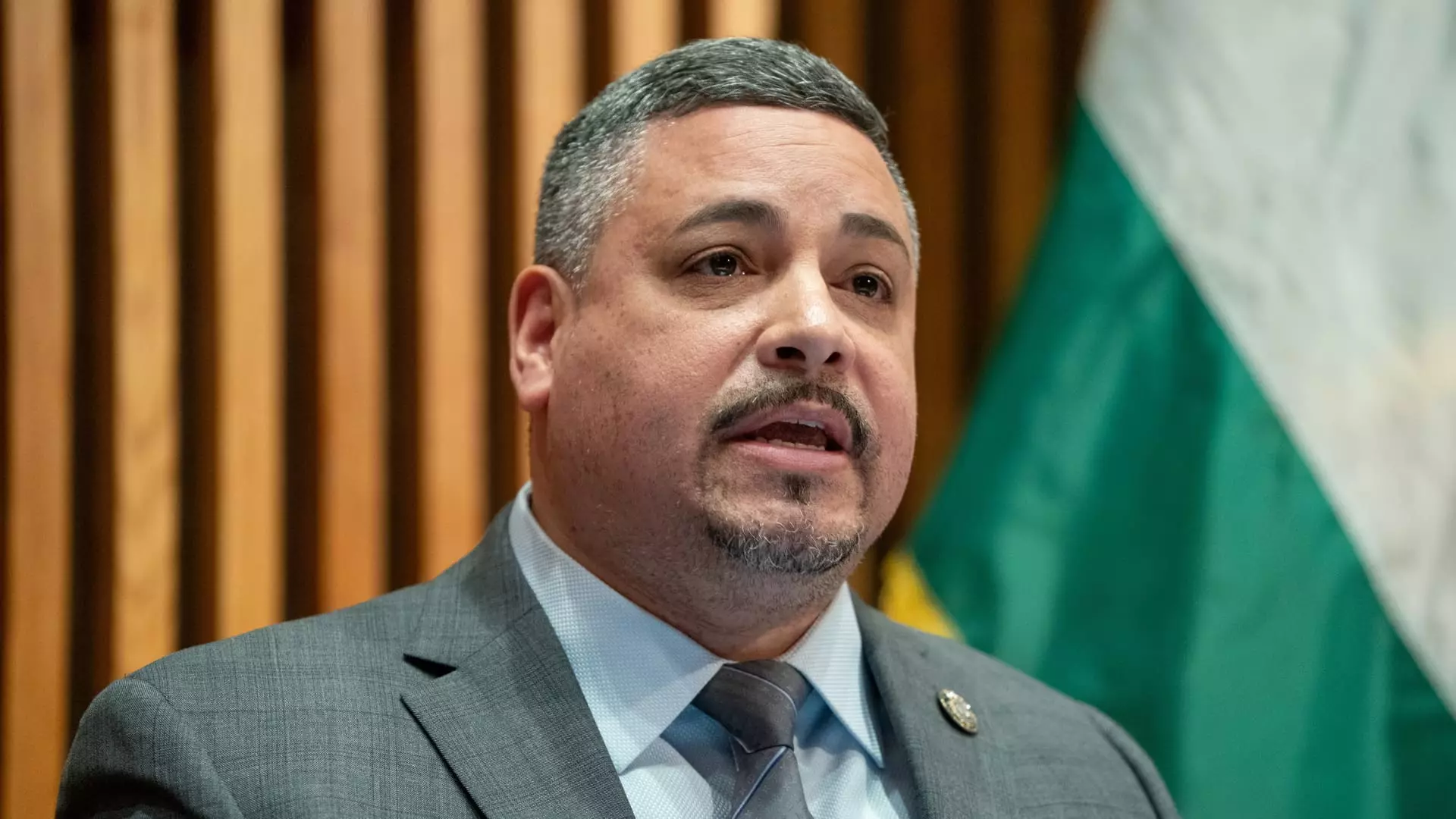On Thursday, Edward Caban, the New York Police Department (NYPD) Commissioner, announced his resignation amidst a federal investigation into the department’s nightclub enforcement practices. Having held the position for just a few months, Caban became the first Latino commissioner in the NYPD’s 179-year history. His unexpected departure sheds light on the turbulent intersection of law enforcement, politics, and ethics in one of the country’s most scrutinized police departments.
The commissioner cited the overwhelming distractions stemming from the investigation, which have impeded the NYPD’s essential functions. In his resignation memo, Caban emphasized that his primary allegiance is to the department, stating, “My complete focus must be on the NYPD – the Department I profoundly honor and have dedicated my career to serving.” Such a message resonates with many who understand the immense pressures faced by police leaders, especially in an era characterized by heightened scrutiny of law enforcement practices.
The investigation, reportedly involving both the Internal Revenue Service (IRS) and the U.S. Attorney’s Office for the Southern District of New York, is looking into connections between Caban and local nightlife establishments. Allegations surfaced suggesting potential impropriety, particularly concerning his twin brother James, who owns a nightclub security business. Investigators are reportedly probing whether bars and clubs in Midtown and Queens may have received preferential treatment in exchange for financial benefits tied to James Caban’s connections within the NYPD.
The ramifications of this inquiry are significant. A key question that emerges is the extent to which officers were pressured to enforce stricter regulations on establishments that did not align financially with the commissioner’s family business. Furthermore, the investigation raises concerns about departmental integrity and the ethical fabric of police operations in New York City.
While no charges have been filed thus far, the investigation’s existence signals an urgent need for systemic introspection within the NYPD. Leadership breaches, if substantiated, could compound the already challenged public perception of policing in America, an institution grappling with profound distrust in the wake of high-profile incidents of police misconduct.
Mayor Eric Adams has now accepted the resignation, marking a significant transition as Caban becomes the third commissioner in less than three years under Adams’ administration. This rapid turnover in leadership not only undermines stability within the already pressured police department but also signals broader challenges facing the mayor’s office. Adams’ administration has been navigating various investigations, casting shadows on its operational effectiveness.
In a bid to restore confidence, the mayor has appointed Tom Donlon as the interim commissioner, a figure with extensive law enforcement experience at various governmental levels. However, the frequent changes at the helm of the NYPD may fuel public skepticism about the administration’s capability to manage and reform law enforcement practices effectively.
Caban’s attorneys released a statement post-resignation, emphasizing the commissioner’s dedication to public service and his respect for NYPD officers. Yet, such a statement may appear hollow to those who question the integrity of a police leadership ensnared in corruption investigations. The optics of his resignation, especially under the shadow of potentially serious allegations, could diminish public trust not only in Caban’s legacy but in the broader structural integrity of the NYPD.
Moreover, the investigation raises concerns about the appropriateness of familial ties influencing police operational conduct. As officials from various locales increasingly call for transparency and accountability in policing, the revelations from this investigation could serve as a case study on the critical importance of ethical governance in law enforcement.
The question remains: how will the NYPD restore faith in its leadership and operational procedures following this resignation? Transparency in the ongoing investigations, alongside proactive reforms addressing any discovered malpractices, will be essential in restoring public trust. The department’s future will depend heavily on its ability to grapple with the complexities of leadership, ethics, and community relations, ultimately redefining what accountability looks like in modern policing.
As New York City continues to witness shifts in its political landscape, the saga surrounding Edward Caban’s resignation stands as a reminder of the delicate balance law enforcement must maintain between powerful personal connections and the ethical responsibilities they carry to the communities they serve.


Leave a Reply